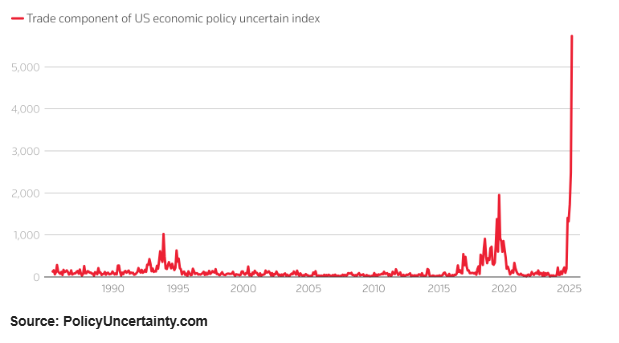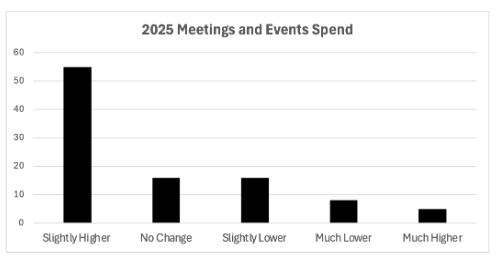Brad Gillespie

Brad Gillespie is the former General Manager of Consulting for Cvent and Founder of The METHOD Project, a research and advisory firm focused on corporate meetings, events, travel, and hospitality.

As I drafted this article on Monday, April 7, the Dow was down 500 points, the S&P nearing bear market territory, and U.S. President Donald Trump threatened, yet again, additional tariffs on China. By Wednesday, Trump had paused all tariffs except for China, and the Dow rebounded, hitting its largest one-day point gain…ever. Things are quite fluid, to say the least. The markets hate uncertainty, and according to the index that monitors it, trade uncertainty is at an all-time high.

Let’s take a collective breath, #eventprofs, and remind ourselves that we’ve dealt with uncertainty before. We’ve experienced our industry when things are out of our control. While things are fluid at the moment, now is not the time to worry about what’s out of our control. Now is the time to identify the foreseeable risks to our programs and lead our organizations forward and through them.
Rather than generalizing on the potential impact that tariffs may have on our programs, let’s break things down in a bit more detail. In the short term, events in certain industries (Government), in certain regions (EU, Asia-Pacific), or around certain topics (DEI) will likely be impacted more than others. Some of your programs will see little to no consequential impact, and in some sectors, meetings and travel will actually increase.
For example, companies that may be impacted by tariffs, directly or indirectly, will likely be traveling to meetings with key suppliers and partners in the supply chain to discuss the impact of tariffs on their products and services. These types of meetings represent activity that would not have happened if it weren't for tariffs.
There are many recent articles and data about goods and services that are more sensitive to tariffs (apparel, consumer electronics, food items, automobiles, alcoholic beverages, steel and aluminum, etc.). Conversely, we should not expect to see meaningful cost increases for items such as AV, local labor, electricity, wi-fi, etc. Crude oil, natural gas, and refined petroleum products are exempt from tariffs from all countries, including Canada and Mexico, and so we should also not expect gas prices to go up to the extent they have a material effect on air fares, shipping costs, etc.
We don’t know how long tariffs will be in play. In my view, tariffs are not intended to be permanent. However, most experts agree that a protracted trade war will almost certainly drive inflation higher. Inflation is currently holding steady, but a meaningful increase would have a broader impact on overall costs much greater than tariffs, themselves. One step at a time.
On Monday at the BTN Strategic Meetings Summit, a room full of industry leaders weighed in on this topic. A combined 76% of attendees said that budgets will remain the same or higher than 2024.

That sentiment echoes recent research from multiple groups suggesting that 2025 budgets in many sectors generally track with the 10+ year historical average.
Five years ago, I wrote an article suggesting what leaders can do, proactively, in times such as these. The pandemic gave us a playbook to deal with uncertainty, and much of it applies today. Here are few thoughts on what we can all be doing to lean in and lead:
These uncertain times are nothing new for the events industry. We’ve faced uncertainty, challenges, and price increases before, and we certainly will again. By taking the time to take a step back, assess the real potential impact and make a plan accordingly, we can ensure that our energy will focus on the priorities within our control, and as leaders, help our organizations navigate the potential pitfalls that can impact our businesses.
Don’t miss any event-related news: Sign up for our weekly e-newsletter HERE, listen to our latest podcast HERE and engage with us on LinkedIn!

Add new comment